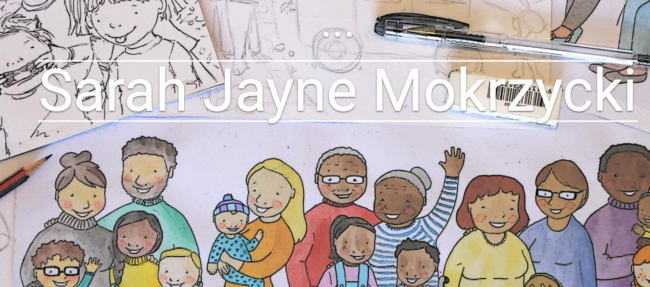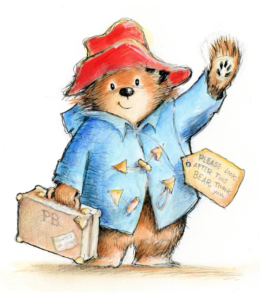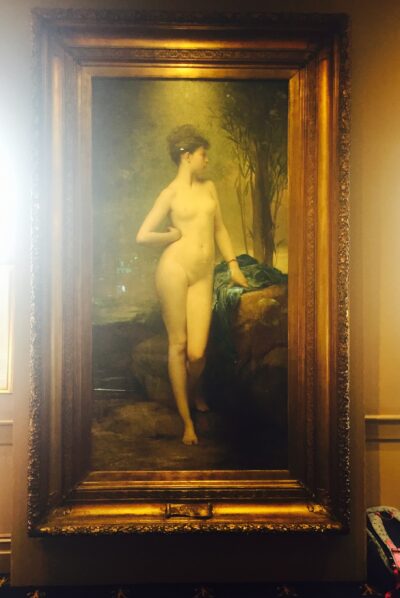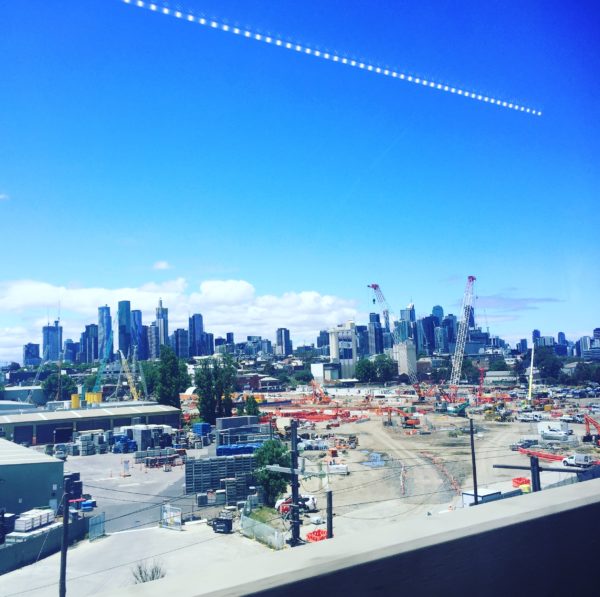
Q&A with Sarah Mokrzycki – Writer, Researcher and Artist

I met Sarah Mokryzcki at the postgrad AAWP workshop. Sarah sat a few seats away from me and during a coffee break, we struck up a conversation about Melbourne, where she is based, and about her foster children who inspired her research. I have always been in awe of foster parents because all the ones I know are these amazingly generous people who have unquantifiable amounts of love to give to the vulnerable children who need safe homes. This multitalented woman is also an excellent public speaker.
Who are you?
I’m a writer, researcher and artist living in Melbourne. I’ve been a foster carer since 2014, and this has shaped my writing and research.
What are you working on at the moment?
A creative writing and visual arts PhD exploring the importance of family diversity in picture books. For the creative component of the PhD I am writing and illustrating a picture book of my own.
What inspired you to look at representations of families in picture books?
It all started because of foster care – most children that enter care in Australia are under 5 years old, and all of my kids but one (we’ve had 12) have been under 5. Finding picture books they could relate to was impossible! Of the little that was available the books were only available online from specialist overseas presses and formatted as ‘issue books’ – books that are issue driven rather than story driven. I realised there was a massive gap in the market, and from that initial finding I’ve expanded my research to look not just at foster care, but family representation in general.
What have you found so far?
My findings so far show that diverse Australian families rely heavily on international books and publishers. A lot of the diverse picture books available in Australia are actually written and published in the UK.
Canada has always been thought of as a more progressive place so have you had a chance to look at representations of families in Canadian books? If so, what have you found?
Canada certainly has diverse books, but these are often specific to Canada (e.g. books with Inuit protagonists) and not often available in Australia. I have also found, through researching educational studies on the benefits of inclusive literature and early reading, that there is an undeniable link between the educational and emotional development of children and their ability to relate to book characters. Lack of representation definitely puts children from diverse families and backgrounds at a disadvantage.
Has moving to Melbourne [Sarah was originally from Perth] given you more opportunities as an illustrator and writer?
I think so! There is such a vibrant artistic community here, and a big thing that has happened for me is the opportunity to meet with some of Australia’s best-loved children’s book authors and illustrators because so many live here!
What are the benefits of doing a Phd in creative arts? I think it’s an incredible way to bring important issues to the foreground of community consciousness. It provides a way to bring significant new art and findings to the academic and wider community, which is so important.
Do you have a regular writing routine? If so, what does it look like?
Hahahaha, my writing ‘routine’ is absolute chaos! I work best when under pressure and when deadlines are looming. So I tend to procrastinate and then go absolutely frantic, writing for hours and hours on end – the feast or famine approach, I suppose!
Who are your favourite writers or illustrators? I absolutely adore Janet and Allen Ahlberg’s books. There is something so delightful about them – you always feel good after reading them.

Who is your favourite fictional character? I don’t know if I can just pick one favourite fictional character! But I do have a very soft spot for Paddington – not only is he such a darling character, but also a foster child (or foster bear, in his case).
What’s your idea of perfect happiness? I’m not sure that perfect happiness exists. My life, because of foster care and the challenges and heartbreak rampant throughout it, is a constant swirl of good, great, terrible, amazing, horrific, joyous moments. Happy moments are often tinged with sadness, sad moments are often touched by love.
What’s your most treasured possession? My jade pendant necklace. I wear it every day. The pendant was originally one half of a cufflink set. When the Nazis invaded and my family had to flee (my grandparents spent 6 months in a forced labour camp and then 10 years in a German refugee camp – where my father spent the first 2 years of his life before emigrating) they disguised the cufflinks in order to get them out of the country. Gold backings with four holes were attached to make the cufflinks look like buttons, and they were smuggled out in a sewing box. One cufflink since went missing, and I wear the remaining one around my neck.
What’s your favourite journey? I can’t pick one favourite physical journey – I’ve travelled a lot and I’ve loved all of it! I do have a special place in my heart for London and the South Pacific, though. I can, however, pick my favourite (and most important) emotional journey: foster care and non-bio motherhood! It’s been a hell of a journey!
What’s next for you? I’m heading to Dublin at the end of March to present my research at the ISSCL Conference on Radical Youth Literature and Culture. After I’ve finished the PhD I don’t know where I’ll end up! I’ll have to wait and see!
Places you can find Sarah:
Twitter: @SarahJayneMok
Linkedin: https://www.linkedin.com/in/sarah-jayne-mokrzycki-49989ab3/
Website: www.sarahjayne.net.au
Sarah has recently published a list of 8 Australian books that are more diverse The Conversation.


2 Comments
Pingback:
Pingback: